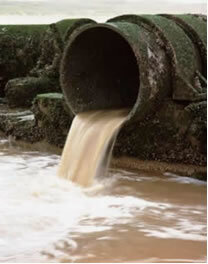One of the most lucrative illegal businesses in the world is animal trafficking, which moves approximately 20 billion people. dollars a year, being the third clandestine activity that generates the most money, behind drug trafficking and weapons.
Animal trafficking is characterized by the removal of animals from their natural habitats and destined for commercialization. The destinations of these animals are zoos, collectors, laboratories for the manufacture of medicines, or dead, such as jaguars and alligators, to have their skins or other body parts removed and sold.

the stolen freedom
Due to the immense Brazilian biodiversity, the country is one of the main targets of animal trafficking, contributing 10% of the billions of dollars raised with the activity. In addition to the wide variety of species (fish, birds, insects, mammals, reptiles, amphibians, among others), another factor that contributes to this practice in the country is the lack of inspection and punishment severe. Traffickers are arrested in the act several times with several animals, however, they pay bail and respond to the process in freedom.
According to the NGO (Non-Governmental Organization) National Network to Combat the Traffic in Wild Animals, in Brazil, about 38 million animals are removed from their natural habitats annually, with approximately 12 million specimens different.
According to data from the Brazilian Institute for the Environment and Renewable Natural Resources (IBAMA), approximately 90% of wild animals die soon after being removed from their natural habitat. Animals that show friendly behavior are preferred at the time of purchase. Tamarins, parrots, macaws and ornamental fish are the best sellers. Values vary, the rarer the animal, the higher its sale price in the market.
According to inspection agents, animals in Brazil are taken mainly from the states of Bahia, Piauí, Pernambuco, Maranhão, Paraíba and Ceará. The main consumer centers are the States of São Paulo and Rio de Janeiro. Approximately 90% of animals captured in Brazil are traded within the national territory.
Do not stop now... There's more after the advertising ;)

act of extreme cruelty
The animals, after being captured, are subjected to various aggressive practices during transport to consumer centers, the parrot is sedated and hidden in PVC tubes in the bottom of a suitcase, snakes are trapped in nylon stockings, various animals are cowardly doped.
Animal trafficking contributes a lot to the ecological imbalance, with a drastic change in the food chain, in addition to considerably reducing the biodiversity of a given environment. But what is worse, many animals do not survive during transport, others do not adapt to the “prison” that man imposes on them, causing the death of most of these animals.
But the problems of this practice also affect human beings, as microorganisms present in wild animals can cause the emergence of diseases and their dissemination among the population.
Therefore, animal trafficking is a greedy act, with drastic consequences for wild animals and the so-called “rational” animals that participate in this crime to life.
By Wagner de Cerqueira and Francisco
Graduated in Geography
Brazil School Team
General geography - geography - Brazil School
Would you like to reference this text in a school or academic work? Look:
FRANCISCO, Wagner de Cerqueira and. "Animal Traffic"; Brazil School. Available in: https://brasilescola.uol.com.br/geografia/trafico-animais.htm. Accessed on June 27, 2021.


